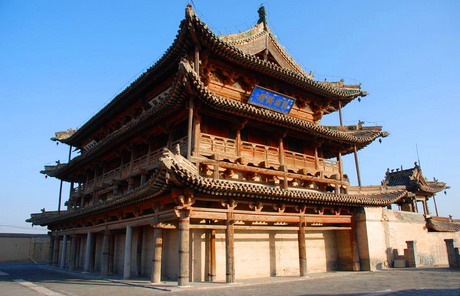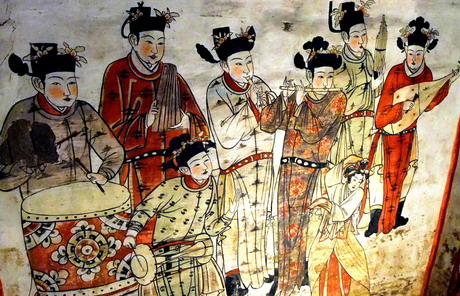

 The ancient town of Guangfu, in Yongnian county, Hebei province might be known to the outside world in China as the birthplace of tai chi.
The ancient town of Guangfu, in Yongnian county, Hebei province might be known to the outside world in China as the birthplace of tai chi.
 After intensive days touring the grandeur of Beijing's imperial palaces and gardens, increasing numbers of tourists take a relaxing trip to a county 250 kilometer west of the national capital to experience another kind of cultural charm.
After intensive days touring the grandeur of Beijing's imperial palaces and gardens, increasing numbers of tourists take a relaxing trip to a county 250 kilometer west of the national capital to experience another kind of cultural charm.
 Most cities and towns along the Great Wall have their origins as important military bases to defend against nomadic tribes from the north, and the ancient city of Xuanhua in Hebei province is no exception.
Most cities and towns along the Great Wall have their origins as important military bases to defend against nomadic tribes from the north, and the ancient city of Xuanhua in Hebei province is no exception.
The world's largest imperial garden complex is expected to receive 600 million yuan ($94.2 million) for conservation from the Chinese government during the 12th Five-Year Plan (2011-2015) period, according to a conservation official in the city of Chengde in North China's Hebei province.
Rock'n' roll fans will soon be able to indulge their passion as preparations are in full swing for the 2012 InMusic Festival in Zhangbei county of northwestern Hebei province.
 While Xanadu, the summer capital of the Yuan Dynasty (1271-1368), was made a World Heritage site in June, conservation efforts are also underway.
While Xanadu, the summer capital of the Yuan Dynasty (1271-1368), was made a World Heritage site in June, conservation efforts are also underway.
 Today a favorite vacation destination, beachside Beidaihe was a small fishing village when English railway engineers provided a getaway in the 1890s.
Today a favorite vacation destination, beachside Beidaihe was a small fishing village when English railway engineers provided a getaway in the 1890s.
The Egyptian pyramids and tombs of its ancient pharaohs are renowned over the world, but few outside China are familiar with the Eastern Royal Tombs of the Qing Dynasty (1644-1911), the largest, most complete and best-preserved extant mausoleum complex in China.
Wuqiao county in North China's Hebei province is considered the birthplace of Chinese acrobatics due to a history of aerial virtuosity that stretches back more than 2,000 years.
In February, an aged man from Zanhuang county took his granddaughter to the provincial capital Shijiazhuang to seek medical treatment for her stomach ailment. But because they had little money, the two had to wait and sleep in a hospital corridor for nights.
 Shijiazhuang, the capital of Hebei province, is on its way to national prominence thanks to its rapid development in economy, tourism and culture.
Shijiazhuang, the capital of Hebei province, is on its way to national prominence thanks to its rapid development in economy, tourism and culture.
 Two thousand years before the advent of cinematography, Chinese people had already started to use tricks of light to create moving images telling stories.
Two thousand years before the advent of cinematography, Chinese people had already started to use tricks of light to create moving images telling stories.